
Your customs partner – CONEX FRANCE


UK import/export customs regulations The new rules that need to be known to ensure you maintain control of the fluidity of your goods movements UK / EU / UK
CONEX, publisher of software solutions for customs procedure management, is organising a webinar on British customs formalities.
During this event, we will detail the impact of the GVMS (Goods Vehicle Movement Service) on your import/export, transit and security declarations and share with you our analysis of S&S GB Safety & Security regulation.

Despite having already brought about modifications to the rules of international trade with the United Kingdom, Brexit has not finished profoundly transforming how goods are traded.
After ICS (Import Control System), required since January 1st, 2021, for all goods moving from the United Kingdom to the EU, now it is the turn of the British GVMS (Goods Vehicle Movement Service) to enter the scene, followed during 2023 by the S&S GB (UK safety and security declaration system).
CONEX is rallying to support European and British customs operators with the various Brexit-related regulatory formalities.
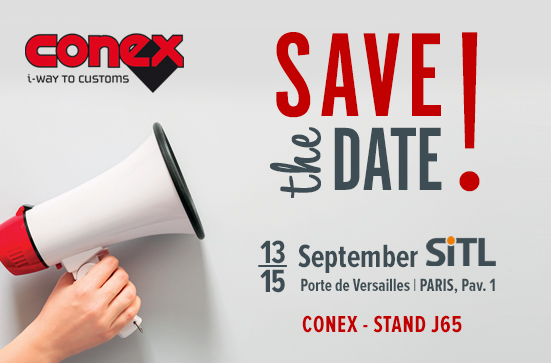
CONEX is a major player in the dematerialisation of customs and security information shared between import/export operators and customs authorities.
We offer businesses a full range of software and data processing solutions that make their organisations more agile. We cover all their interconnection needs with their customers, suppliers, partners and multiple customs authorities.
Faced with the complex regulations of international trade, companies need tools that ensure processing automation, data exchange traceability and security, and communication with third parties.
It is in this context that CONEX's activity has evolved over more than 35 years. Time is a force that has enabled us to acquire the recognition of customs administrations and international standardisation bodies as well as the confidence of many international Supply Chain actors.
Come and meet our team at the SITL trade fair, where you will have the opportunity to discover or rediscover our solutions. We will share information with you on the customs and security evolutions to come and the solutions we bring to the business problems that shippers and forwarders encounter on a daily basis.
To obtain your free badge, enter the code EXH69219 when making your request on the SITL website.
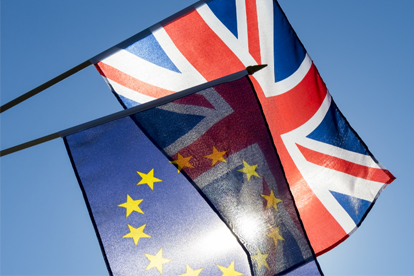
The British government announced the postponement of the deadlines for certain procedures in the post-Brexit cross-border customs context, effective since January 1, 2021. The British customs administration had presented a timetable for the gradual introduction of controls on imports into Britain from the EU, so that businesses could prepare progressively.
This calendar has been revised. Safety and security declarations for imports will be required from the end of October 2024.
Currently and since January 1st, 2021, goods coming from third countries and destined for Great Britain must be subject to an entry summary declaration (ENS) which must be lodged in the GB S&S system. Goods from the EU benefited from an exemption until July 1, 2021 which was extended until January 1, 2022 and then until 31st October 2024.

Dear customers, dear partners,
The year 2020 has been such a challenge for us all, with Covid 19 as our ‘Sword of Damocles’... We also discovered the virtues of teleworking.This mark on our lifestyles, without being indelible, will leave traces in companies’ organisation and the relationships with employees. From the very first confinement, Conex was able to organise itself to allow it to ensure “business as usual” for our customers.
You have not had to endure any defect in the continuity of our services and have been able to continue your activity in full transparency. This proves that the notion of customer service is a priority for our teams. Given the epidemiological forecasts for 2021, we will have to keep this organisation going for a few more months to come.

During this particularly troubled time, “Our English neighbours” (as it has been agreed to call them) continued to distance themselves from the European Union. We were required to adapt our tools to the new concept of the Smart Border, but not content with that, we decided to cross the Channel ourselves and pitch our tent among the British.
Transposing our national rules in the Anglo-Saxon fashion was not easy, given this period of change within the United Kingdom. Initially, HMRC (Her Majesty's Revenue and Customs) planned to change their existing IT system (CHIEF) to a more up-to-date system (CDS) of Dutch origin.
But that was before ... the decision in favour of Brexit.
With Brexit on the horizon, HMRC (belatedly) gave up starting with CDS and fell back on CHIEF, making a number of adjustments as they went along. We had to review hastily our development strategy, initially based solely on CDS, taking a 180° turn to make our solutions compatible with CHIEF. Different codifications, EDIFACT message structures, modified transmission technologies….
In short, rethink everything … Everyone to battle stations, with a deadline of 01/01/2021.
Here again, the notion of customer service has prevailed in our teams who have stepped up their efforts and gone the extra mile to allow those who entrusted us in the United Kingdom to be operational by D-Day.
 CDS, CHIEF and ICS :
CDS, CHIEF and ICS :At the same time, the closer the fateful Brexit date approached, the more the acronym ICS (Import Control System) made people talk about it…. With ten years of experience in this security regulation, CONEX has been able to provide the entire chain with a solution designed according to the needs of each individual operator, whether carrier, forwarder or shipper. This solution is particularly suited to RoRo modes of transport, regardless of the point of entry in the European Union.
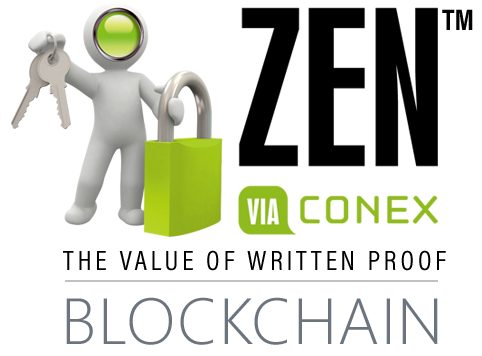
Notwithstanding all this work, CONEX undertook and finalised a collaborative platform under the name of zen via conex™. It supports the collection of declarative data and documents, managing them in the form of an EDM (Electronic Document Management) with Blockchain technology contribution of course, a close link with the customs declarations produced through our software.
In addition to traceability of the evolution of each file, Zen via conex™ enables analysis to be performed through a set of KPIs, thus offering its users complete investigation freedom over its customs operations and data.
Thanks to variable geometry shareability, Zen via conex™ makes it possible to set up exchange and communication "clusters" of varying sizes.
We are now certain of our customers' interest in a product like this. Many of you have already opted for this solution which is ready and waiting for you to express your wishes in order to improve even further.

At the end of such major works in 2020, I would be remiss if I did not mention the EDI platform PASScom via conex™ which has had a makeover. This technological change took place behind the scenes without disrupting your business. However, it has allowed the complete renewal of our server park based on the latest technologies, and its relocation to ensure even better security conditions.
The year 2020 will go down in the history for Conex.
I hope that 2021 will allow our teams to slow down just a little.

In this back-to-school season, which requires our attention on all fronts at the same time, there is still one subject that we can anticipate: the arrival of Brexit … In all the time we’ve been talking about it, and even if there are still many questions pending in negotiations with the European Union, one thing is certain: private economic operators will have to become accustomed to making new declarations.
From 1st January 2021, a safety / security declaration will have to be carried out for goods coming from the United Kingdom to the European Union customs territory. We invite you to carry out a rapid check that you are ready to manage this turning point which will require us to live different relationships with our English cousins and to quickly take the necessary actions to comply. The countdown is approaching zero!
January 1st will also mark the return of customs formalities with the United Kingdom… CONEX is there to tell you everything you need to know to be operational from this important date! Don’t miss our WEBINARS ?
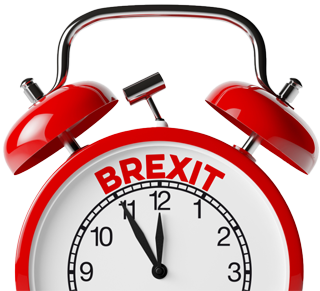
The countdown has begun … As of January 1st, 2021, for all goods originating in the United Kingdom and arriving on European Union soil, economic operators will be required to draw up a safety / security declaration. This Entry Summary Declaration (ENS) falls within the framework of the European Import Control System (ICS) regulation. The SAFE via conex ™ ICS solution is your “one-stop-shop” for Safety / Security requirements: it is directly connected to practically all European administration servers thanks to our regulatory, technical and technological skills. This is the solution to simplify Post-Brexit ICS for you in total security and peace of mind, regardless of the first point of entry into Europe. WEBINAR Next session on November 10th.

Conex teams have been on deck for many months in order to anticipate the changes linked to Brexit and to facilitate your transmissions to the authorities. The return of customs formalities with the United Kingdom come into force on January 1st, 2021 regardless of the outcome of negotiations … The CONEX solutions are ready to communicate with the BREXIT SI (Information System) for your French customs operations, transit and ICS (Import Control System), AND YOU?
Discover all the details in 2 minutes, ON VIDEO!

CHANNELpass via conex™ allows you to manage customs flows for France, United Kingdom and Belgium in fully optimised processes that ensure full compliance with local customs. Strengthen the automation of your reporting processes on both sides of the Channel and consider performing your French, Belgian and or UK declarations from a single location.
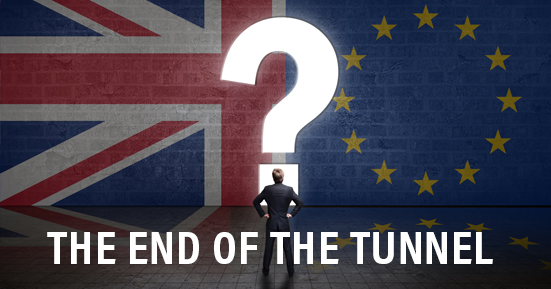
It’s a never-ending cycle. Four years have passed since the announcement, in the wake of the 2016 referendum, of the UK’s exit from the European Union. Brexit will come finally into effect on January 1st, 2021. Time is running out and the end of the year is going to be crucial.
So where are we really?
EU heads of state and government met on October 15-16 at the EU summit to assess progress of the talks and possibly give the green light to open a final round of negotiations. Despite the British threat not to respect the withdrawal treaty and the infringement procedure initiated by the Commission against the United Kingdom on October 1, some European diplomats still dare to evoke “positive” negotiation dynamics.

EU heads of state and government met on October 15-16 at the EU summit to assess progress of the talks and possibly give the green light to open a final round of negotiations. Despite the British threat not to respect the withdrawal treaty and the infringement procedure initiated by the Commission against the United Kingdom on October 1, some European diplomats still dare to evoke "positive" negotiation dynamics.
The British Prime Minister even believes it is possible that the two sides reach a compromise but stressed that "various issues remain to be resolved". "The European Union must understand that we are very serious about the need to control our own laws and our own regulations," he warned.
In fact, none of the last major obstacles, namely fishing rights, the rules of a “level playing field” in terms of competition and state aid, judicial and police cooperation as well as the means to settle disputes, has been overcome so far, as President Macron has pointed out.
Appearance of a new (virtual) border to take goods out of England
Without a deal between London and Brussels, the British government has estimated that 7,000 lorries could be stranded in Kent for up to two days before being allowed to cross the Channel. To remedy this disaster scenario, from January 1st, drivers of heavy vehicles will need to obtain a permit to enter the County of Kent, in which the port of Dover is located. The objective: to avoid traffic jams linked to customs controls. In fact, this measure will create a kind of border inside the country!
Drivers of lorries over 7.5 tonnes will therefore have to prove that they have all the necessary papers to transport their goods to the continent before arriving in this south-eastern county. Drivers who are not up to date with their paperwork will be detected via automatic recognition of their license plate, and invited to turn back, not without being fined 300 pounds!
“This is not a forecast or prediction of what will happen but rather a stretching scenario.” Minister of State Michael Gove told Parliament. Thus today, it is estimated that only "30 to 60%" of trucks would arrive at the border having completed the necessary formalities for their goods. Without these formalities, it will be impossible for drivers to board ferries to the continent.
Claire Fournier - CONEX
International Development Manager
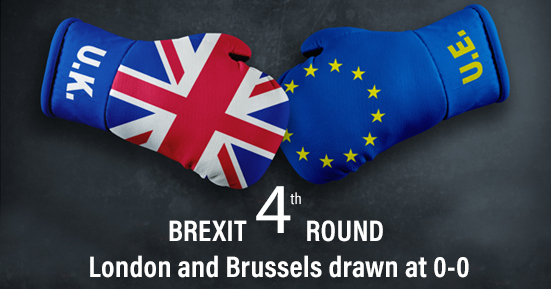
The fourth round of Brexit negotiations between the European Union and the United Kingdom ended last Friday like the previous three: with a failure.
"There has been no significant progress," said Michel Barnier, after a new round of sterile discussions with the British negotiators. Whether it is on fishing rights, on the question of governance or on the ‘level playing field’, each party remained camped on its positions. However, "on all these points, we ask for nothing other than for the Political Declaration to be respected," Michel Barnier declared.
December 31st is looming and without any compromise, it is the World Trade Organisation rules and its customs duties that will apply, while Boris Johnson continues to refuse to seek an extension of the transition period. "He seems to be incorporating the scenario of a no deal," said Aurélien Antoine, director of the Brexit Observatory. Such a situation means that, if there is no extension of the transition period, an agreement on a legal text must be reached by October 31st at the latest, that is in just under 5 months.
However, everything is still possible since a high-level meeting, agreed in the Political Declaration, to take stock of the negotiations must be planned before the end of June. Nevertheless, Michel Barnier concluded his speech at the end of this fourth round of negotiations by opening a door to the hope for a positive outcome: "... and if we maintain our mutual respect, our serenity and our determination, I have no doubt that, during the summer or at the latest at the beginning of autumn, we will find common ground between the United Kingdom and the European Union. And finally, that we will find an agreement on our partnership for the future."